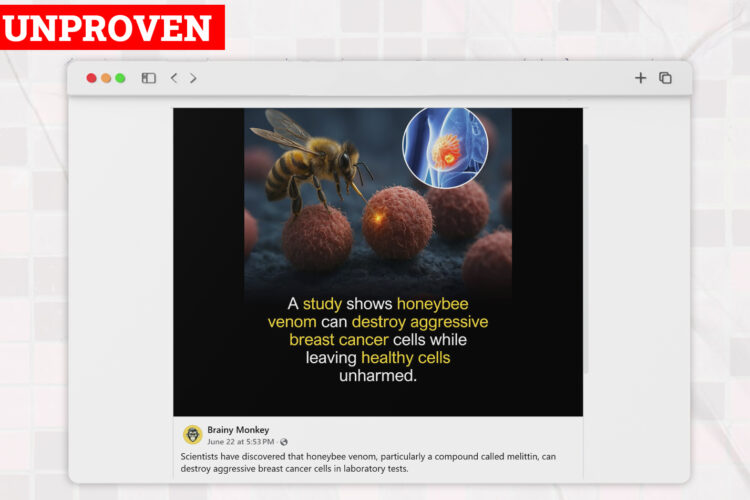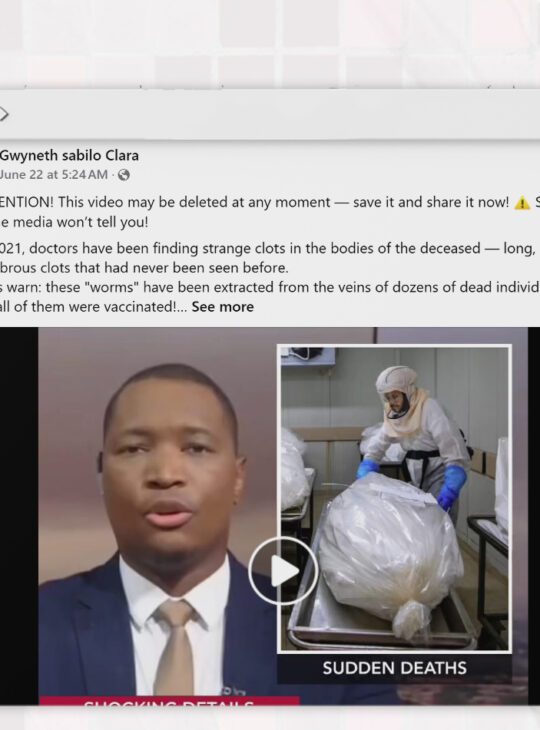Can Honey Bee Venom Destroy Aggressive Breast Cancer While Leaving Healthy Cells Unharmed?
A circulating image on popular messaging platform, WhatsApp, which might have been gotten from Facebook and posted on June 23, 2025 , claims that honey bee venom can destroy breast cancer while the healthy cells are not harmed, pictured below.
The claim which had a picture of a bee with a superimposed computer generated image, CGI of breast cancer mammogram was captioned, “A study shows honeybee venom can destroy aggressive breast cancer cells while leaving healthy cells unharmed.”
VERIFICATION
A widely cited 2020 study led by Dr. Ciara Duffy at the Harry Perkins Institute of Medical Research and The University of Western Australia found that melittin could kill cancer cells in lab-grown cultures of triple-negative and HER2-enriched breast cancers. Melitt is a major component of honeybee venom, known for its potent anti-inflammatory and anti-cancer properties. The venom was observed to interfere with cancer cell membranes and signaling pathways critical to their survival.
In a 2024 published research findings by seven Chinese scientists, melittin appeared to affect cancer cells more than normal cells, particularly when combined with chemotherapy drugs. However, they acknowledged that dosage and delivery mechanisms were critical, as high doses could also damage healthy cells. Meanwhile, an article on bee stings by Mayo Clinic states that bee venom can cause serious allergic reactions, including anaphylaxis, in some individuals. Unregulated or alternative use of bee venom therapy, known as apitherapy, has resulted in severe side effects and even deaths.
What Experts Says
Okon Ndak, a chemotherapist at the University of Calabar Teaching Hospital, UCTH, said “I have not heard such over my years of practice, maybe it’s a new adoption but I bet you, it’s still in the early stage,” adding that “if such studies are true, it would a great breakthrough”. Ndak reaffirmed that “an overdose of bee venom can be very deadly”, advising cancer patients to “always adhere to their scheduled routine of chemotherapy.”
Dr. Ali Ibrahim with the Specialist Hospital, Gombe, noted that “bee venom has side effects and is dangerous, if not controlled.” He said further that, “the medical study by Dr. Ciara Duffy has not been tried on animal or human, due to toxicity, inefficacy, or delivery challenges”.
Ibrahim advised that “people should stop believing whatever they see on the internet so that they don’t suffer from complications…seeking proper medical advice remains the best practice.”
CONCLUSION
The claim that bee venom destroys cancer while leaving healthy cells unharmed is UNPROVEN. According to experts, more research including animal studies and human clinical trials, is necessary to determine whether bee venom could be a safe and effective treatment.



